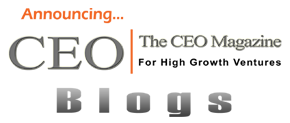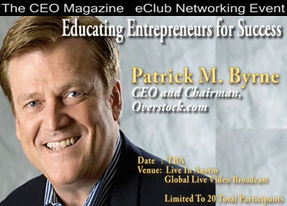You are here
- Guest Blogger |
- Management |
- Thu, 02/05/2015 - 20:46

Deborah DeHaas, Vice Chairman, Chief Inclusion Officer & National Managing Partner, Center for Corporate Governance, Deloitte LLP
There is no shortage of articles about the need for greater diversity among boards of directors at US organizations. And no doubt, some boards are moving in the right direction, although generally at a slow pace. The 2014 Boards Practices Report, published by the Society of Corporate Secretaries and Governance Professionals in collaboration with Deloitte LLP's Center for Corporate Governance, found that, on average, 18 percent of the 250 public companies surveyed had increased the number of women on their boards last year. Meanwhile a smaller average of companies surveyed—13 percent—had increased the number of minorities on their boards last year, and that occurred only at large and mid-cap companies, no small caps.
Diversity discussions at the board level tend to focus on skills and experiences or the more obvious gender and ethnicity, but there is another type of diversity that I see lacking and one that will likely become increasingly important in the years ahead: generational diversity. The 2014 Boards Practices Report and other surveys have found little to no generational diversity in the boardroom. The so-called “younger” directors on boards tend to be over 50, and at many boards retirement age is approaching 75. As a result, the voice and perspective of younger generations—a demographic group estimated at 77 million in the US alone—are often missing. That gap poses a risk for nearly every business and industry.
By all means, the wealth of experience and value that older directors, many of them former CEOs, offer companies should not be underestimated. Rather, there is a great, and largely untapped, opportunity for boards to seek younger directors to gain perspectives of a generation that is redefining technology, consumer preferences, business strategy, business models, and even business risk. Consumer trends driven by millennials are dramatically changing the competitive landscape, especially where tastes and buying decisions are increasingly driven by social networking. A younger perspective at the board level can help organizations reach and connect to this marketplace, and understand the world from their lens.
There is another demographic shift taking place at organizations for which the millennial perspective at the board level might be crucial: the changing persona, views and expectations of the workforce. With more baby boomers retiring, many organizations face a skills shortage. But attracting and retaining talent from the millennial and younger generations, which seek work-life balance and view job tenure much differently than older workers, may require new approaches and tools.
At many companies, not enough has been done to reach this younger generation of talent , who will leave companies and countries for opportunities elsewhere. Likely more needs to be done to understand what motivates younger employees, within the context of an organization’s own succession practices, to strengthen the pipeline of high-performing, up-and-coming employees and executives.
A starting point could be greater outreach and mentoring on the part of boards of younger employees, advisors, and future board members. There is much to be gained—and virtually nothing to be lost—for those organizations that seek more diverse views and experiences, including those of millennials.
About the Author
Deborah DeHaas is vice chairman, chief inclusion officer, and national managing partner, Center for Corporate Governance, Deloitte LLP. DeHaas drives Deloitte’s strategy to develop a diverse workforce and foster an inclusive environment where leaders thrive. She leads the Center for Corporate Governance by setting the strategic direction and establishing board and C-suite relationships through innovative programs. As a lead client service and advisory partner, DeHaas has engaged with boards to address timely governance issues.
This publication contains general information only and Deloitte LLP and its subsidiaries ("Deloitte") are not, by means of this publication, rendering accounting, business, financial, investment, legal, tax or other professional advice or services. This publication is not a substitute for such professional advice or services, nor should it be used as a basis for any decision or action that may affect your business. Before making any decision or taking any action that may affect your business, you should consult a qualified professional advisor. Deloitte shall not be responsible for any loss sustained by any person who relies on this publication. Copyright © 2015 Deloitte Development LLC.
Follow The Blog
Blog Categories
- Business Ops. (45)
- Editors (3)
- Entrepreneurship (196)
- Finance (25)
- Leadership (529)
Blog Authors
- Guest Blogger (835)
- Cynthia Kay (92)
- Linda Henman (78)
- Dianna Booher (46)
- Craig Ross (31)













